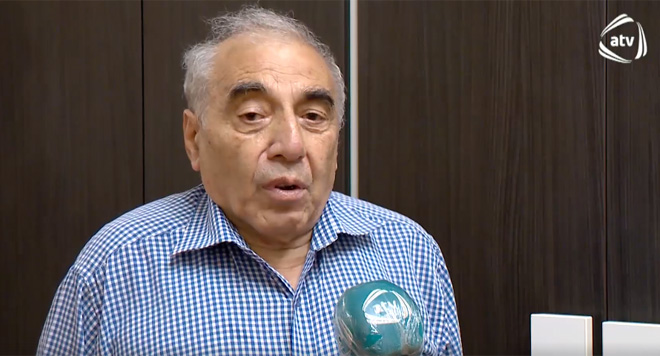
Head of the Laboratory of Ecological Biophysics of the Institute of Biophysics of ANAS, Dr. Biology, Professor Tokay Huseynov delivered a lecture at the Baku Main Health Department.
The report was devoted to research based on numerous studies on the impact of one of the environmental factors (selenium status) on the development and pathogenicity of HIV/AIDS, which is part of the Covid-19 genome, Ebola and other RNA viral infections.
Based on existing and scientifically proven research, Tokay Huseynov noted that the lack of selenium (Se) in human food, one of the chemical elements, can lead to the development of the most common viral diseases of our time. He said Hantavirus, Coxsackie, avian flu, Ebola and other dangerous viral diseases had symptoms similar to COVID-19.
The speaker also stressed that the increasing selenium deficiency in many countries, including Azerbaijan, is caused by a significant deterioration in the ecological situation, which is directly related to anthropogenic human activities in particular, the intensive development of energy, industry, communications, transport, which causes significant emissions of gas anhydrides into the atmosphere, soil acidity, as well as heavy elements, reduces the mobile forms of selenium absorbed by plants and entering the human body through them.
According to the professor, the use of selenium as a drug (mainly in the form of sodium Selenite) has led to a significant improvement in the condition of patients, and even complete recovery (Coxsackie virus – Keshan, China). He noted that selenium was one of the main drugs in South West Africa that prevented transmission of the disease from HIV to AIDS. In many countries around the world suffering from selenium deficiency, including developed countries and most of Asia, Australia, Africa, as well as in many CIS countries (Russia, Ukraine, Belarus, etc.) and the Baltic States, have adopted state programs to ensure the normalization of selenium status at the legislative level.
Speaking about the fact that Covid-19 is a vascular disease rather than a respiratory one, the speaker stressed that the tragic consequences of the virus were mainly due to blood clots, while sodium selenite had antithrombotic properties and prevented thromboxane formation.
According to the scientist, it was also found that thrombopenia, which is directly related to the development of stroke, occurs during infection with the COVID-19 virus: “All this suggests that the susceptibility to coronavirus and its complications depends on the degree of selenium intake into the body. Sodium Selenite itself can be effective in the treatment of this disease,” T. Huseynov said.